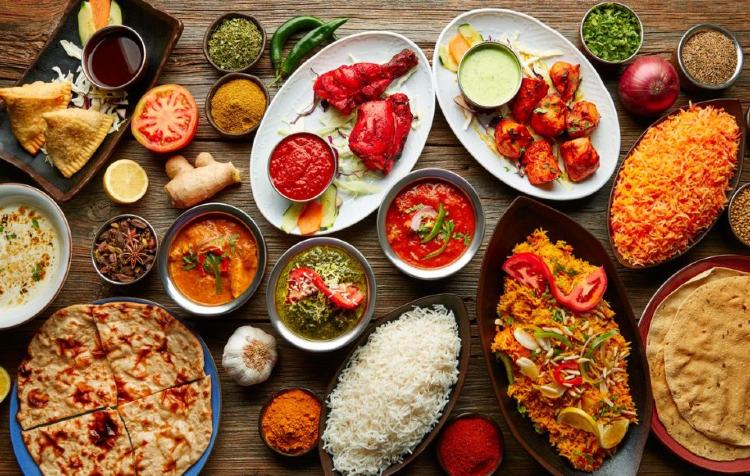Nowadays, we hear a lot of people converting to vegetarianism, including celebrities, models, and health buffs. The question of whether or not a vegetarian diet is healthful and aids weight loss has been debated for years. Fruits, nuts, vegetables, fruits, grains, and legumes are all included in a vegetarian diet.
There has been a raging debate for years about the shortcomings of a vegetarian diet against the dangers of a non-vegetarian diet. This contentious dispute is both accurate and unfounded. That’s most likely why it’s still a point of contention.
It is both accurate and inaccurate at the same time. But, before you reach a conclusion, have you observed that people get sick more from an inadequate diet or overeating, as well as from leading sedentary lives, than from what they eat? India has more deaths from diabetes and heart disease (lifestyle diseases) than from accidents or infectious diseases, according to World Health Organization (WHO).
Dietary choices reflect a person’s cultural, religious, and, to a lesser extent, personal identity and preferences. The concept is introduced in childhood, and it is later modified according to personal preference once a person has grown up and is able to make his or her own decisions. Taste, desire, health conditions, or other personal or relationship-related issues can all influence eating choices.
Doctors, dietitians, health nuts, environmental activists, animal-welfare organisations, and meat industries have all spoken a lot about non-vegetarian cuisine in recent years. Whether these sentiments were positive or bad, the world population has not gone completely vegetarian, nor has everyone adopted a meat-eating lifestyle.
While the transition from one eating pattern to another continues, let us examine some of the differences between non-vegetarian and vegetarian diet.
Foods in the West are divided into two categories: animal foods and plant foods. In India, however, we distinguish between non-vegetarian and vegetarian diet. While some consider vegetarians to be those who consume exclusively plant foods and dairy products, others consider eggs to be vegetarian, and a few consider fish to be vegetarian.
Some benefits of a vegetarian diet
A vegetarian diet consists of eating all forms of plant foods, as well as milk and dairy, while avoiding all meat and animal-derived goods and by-products. Vegans, a subset of vegetarians, avoid all dairy products and eggs in their diet.
“non-vegetarian food no doubt is the best source of protein (the macro requirement of the body); but the vegetarian can easily substitute this requirement of their body with nuts and lentils,” said Dr Preeti Shukla, Dietician and Chapter President IDA (M.P) to Free press journal.
- Vegetarians are known to consume fewer proteins, but they do not experience the health concerns associated with a high-protein diet, such as osteoporosis (marked by brittle, weak bones) and kidney failure.
- Antioxidants such as vitamin E and C, as well as carotene, which is found in vegetables and fruits, are abundant in the diet.
- Furthermore, they consume fewer saturated fat
Some advantages of a meat-based diet
The non-vegetarian diet provides high-quality protein. This diet is the primary source of B vitamins, particularly B12. This diet is high in amino acids that our bodies can’t make on their own. The likelihood of devel_storuoping anaemia is significantly lowered. However, just like the vegetarian diet, this one has a downside.
Non-vegetarians are more likely to develop chronic diseases such as heart disease, hypertension, diabetes, and so on. If enough exercise is not included in the daily routine, a non-vegetarian diet that is poor in fibre might lead to obesity. Excess meat consumption causes the development of free radicals in our bodies.
- Protein: Meat, fish, eggs, and dairy foods are all good sources of protein in a non-vegetarian diet.
- Vitamin B 12: Meat, fish, eggs, and milk are high in vitamin B 12 and iron. It’s crucial for the development of red blood cells and nerve fibres. Iron deficiency, often known as anaemia, occurs when our bodies cannot create enough red blood cells.
- Fitness: Meat, poultry, and fish, as well as eggs, protect our bodies from the extreme cold of winter. We get vital vitamins, proteins, nutrients, and minerals from eggs and fish, which are helpful for our general health.
- Increased wisdom – According to medical science, a diet rich in marine foods such as fish and eggs sharpens our intellect and promotes proper brain function. Our wisdom is accelerated as a result of this.
But looking at the current generation’s eating habits, everyone is consuming more refined foods such as sugar, white rice, refined flour, and so on, as opposed to whole grains such as whole wheat bread, brown rice, and so on. Vitamins and fibre are missing from refined grains.
Supermarkets are bursting at the seams with pre-packaged and processed meals. By eating from such brightly coloured packages, the youth are endangering their health. Processed food consumption is far higher than that of fresh fruits and vegetables around the world.
These foods are high in sodium. Obesity, heart disease, stroke, and diabetes are all promoted by a high diet of refined foods, processed and fried meals, salt, and fatty meats, and this applies to both vegetarians and non-vegetarians.
Also Read: Food Lovers From Kerala Are Participating In Biryani Contest To Win One Lakh Rupees

2 Comments